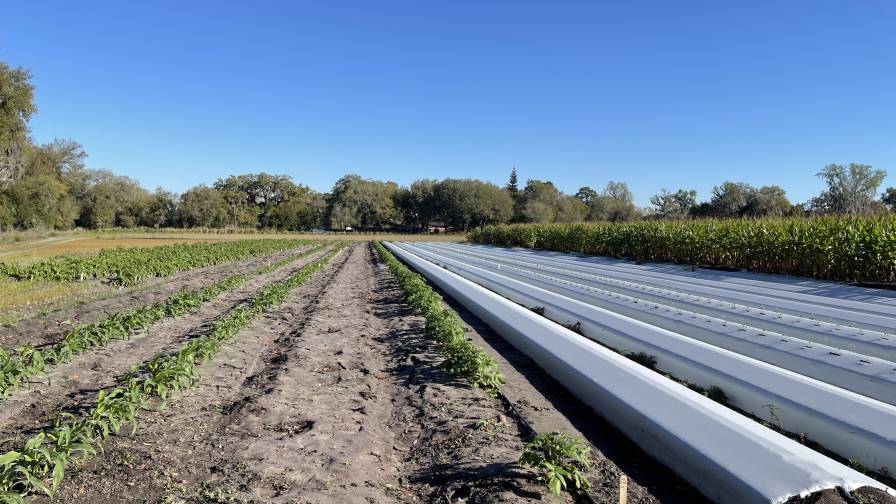Agro-Culture Liquid Fertilizer: Research-Proven Results On Display
CropLife recently joined growers and other visitors in St. Johns, MI, for Agro-Culture Liquid Fertilizer’s annual Research Field Day, held at their North Central Research Station (NCRS). The research facility sets aside several days in August and September for visitors to get an up-close look at their latest research and explore the benefits of using AgroLiquid products on their farms.
“This is our 20th growing season at the NCRS and there have been research tours every year,” said Dr. Jerry Wilhm, senior research manager at NCRS. “There are multiple dates for growers to come and take a look at the facility, based on when they can get away. Growers attend from all over the country, from California to Maine and Florida to Washington.”
The North Central Research Station
AgroLiquid established the North Central Research Station to expand product knowledge and facilitate the development of new products for growers. The research facility’s 580-acre proving ground sprawls over 12 farms and offers a variety of soil types and soil nutrient levels for conducting research. The station’s large size is a monument to the rapid growth it has experienced since its humble 30-acre start in 1994.
Ten full-time researchers at the NCRS dedicate their time to finding products and product recommendations that best fit growers’ needs. The research station focuses on two types of research. Stephanie Zelinko and Tim Duckert head up the field crop research, which focuses on 10 different crops. Dr. Brian Levene manages the specialty crop research, which encompasses more than 20 different annual and perennial crops.
Field Day Preparations
Zelinko plays a large role in organizing the field days. That’s in addition to her research duties and preparations to get the NCRS in top-notch shape for visitors. During initial planning stages, AgroLiquid considers what questions growers are asking and uses that as a starting basis to determine what to highlight during field days.
The time and dedication the staff puts in to make the field days an educational and informative experience for visitors is quickly apparent, from the outstanding presentations to the well-prepared, friendly staff who are never too busy to answer questions.
Field Crop Tour
The research field day kicks off with separate tours of field crops and specialty crops. Visitors ride in tractor-pulled trailers equipped with bench seating and wired for sound. They tour some of the replicated research plots and get a good look at several different experiments, each with a different crop nutritional focus. This year, the field crop tour focused on fertilizer program comparisons in permanent corn/soybean rotations, sulfur programs, nitrogen source comparisons and strip-till applications in corn.
The tour took place at Farm 7, a new farm to the research station, but one they like to use for field days because it has a variety of soil types. Growers get the opportunity to see how liquid products work in different conditions that might be similar to ones on their own farm. While two of the farms at the NCRS have overhead irrigation, Farm 7 is “rain fed,” so growers got a good look at dry land conditions this year.
Hands-On Demonstrations
“Visitors spend the afternoon attending ‘demonstration’ tours where different fertilizer inputs are closely evaluated by looking at ears, stems, roots, equipment and other aspects of fertilizer application and crop utilization,” said Wilhm. “Also on display is the research application equipment, such as planters and sprayers, which accurately establish the various experiments.”
The demonstrations are a great time for growers to ask in-depth questions and get a close-up look at how the equipment is utilized for the experiments. The fertilizer placement demonstration, for example, included a planter labeled with different options such as “In-Furrow Rebounder” and “In-Furrow Tube.” An operator ran water through the planter to demonstrate each option as the presenter talked about it.
Grower Education
The day wraps up with old-fashioned ice cream and a question and answer session. “Our research days are a great time to educate growers,” said Cory Schurman, senior agronomy manager at AgroLiquid. “Growers enjoy being able to ask detailed questions that apply to their individual growing situations. Field day is our chance to address those questions with researched answers.”
For more information on the Agro-Culture Liquid Fertilizer’s field days at the NCRS, visit AgroLiquid.com.






